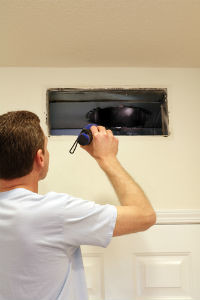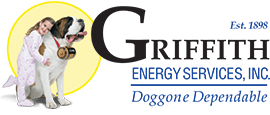
Preventing dirty ductwork is one of the most important things a homeowner can do. When neglected, ductwork can become contaminated with dirt, mold, and other pollutants. Since indoor air moves through the ductwork as the HVAC system cools down or heats up your air, your home's indoor air quality will be greatly affected by dirty ductwork. This can lead to health issues, such as asthma and allergy symptoms.
Here are some preventative measures homeowners can do that will go a long way toward preventing dirty ductwork from happening in the first place.
Schedule Preventive Maintenance
Schedule preventive maintenance for your home's heating and cooling system at least once a year. During these calls, these systems will be cleaned, maintained and checked for developing issues. This attention will also prevent contaminants that may have worked their way into your HVAC system from getting into the ductwork and the indoor air.
Preventive maintenance will also ensure that your HVAC system continues to operate at peak efficiency.
Seal Ductwork During Renovations
Home renovation projects create a lot of dust and other contaminants that you don’t want in the ductwork. Ask your building contractor to seal the ductwork before getting started on any renovation projects.
Clean New Ductwork
New ducts usually have debris and oil in them, and they need to be professionally cleaned before your HVAC system is turned on. Make sure the professionals who are installing the ductwork thoroughly clean it. Not doing so can send debris and oil throughout your home and into the HVAC system.
This applies to newly constructed homes, as well. If you're moving into a new build, check if the ductwork has been professionally cleaned before you run the heating or cooling system.
Clean Your Home Regularly
Dusting and cleaning your home will help maintain high-quality indoor air. As indoor air circulates throughout your home, it will pick up any dust, mold spores and other contaminants that haven’t been cleaned and bring them into the ductwork.
Wipe up dust from surfaces in your home and vacuum carpets regularly to reduce the amount of dust and dirt in your home. Clean bathrooms and the kitchen regularly to prevent or remove mold growth. Turn on the exhaust fan in the bathroom and kitchen when in use to ensure that extra moisture and pollutants are vented out of the home.
If you have pets, you might need to clean more often to remove pet dander and prevent it from getting into the ducts.
Inspect Possible Sources of Contamination
If you have a room, such as a bathroom, that’s susceptible to mold problems or holds a lot of chemicals and other contaminants, consider whether the air intake registers in these areas will bring up these contaminants into the ductwork. Find solutions to these sources of contaminants — eg. solving a recurring mold problem in a bathroom — to reduce the amount of pollutants that enter the ducts.
Have Ductwork Inspected
Ductwork should be checked periodically for any physical evidence of contaminants. You can inspect the ductwork yourself or hire a professional, who will have the right tools and the know-how to inspect hard-to-reach spots throughout your home.
Preventing dirty ductwork is as simple as regularly cleaning your home, having the HVAC system professionally maintained on an annual basis, and getting ductwork inspected and sealed. However, if you think your ducts are already dirty and it's affecting your IAQ, a professional duct cleaning may greatly improve your indoor air quality.
For more information on preventing dirty ductwork, contact the experts at Griffith Energy Services, Inc. We serve Baltimore, Frederick, Hagerstown, Manassa, Westminster, and Easton, as well as Dover, DE, and Martinsburg, WV.
Image Provided by Shutterstock.com



